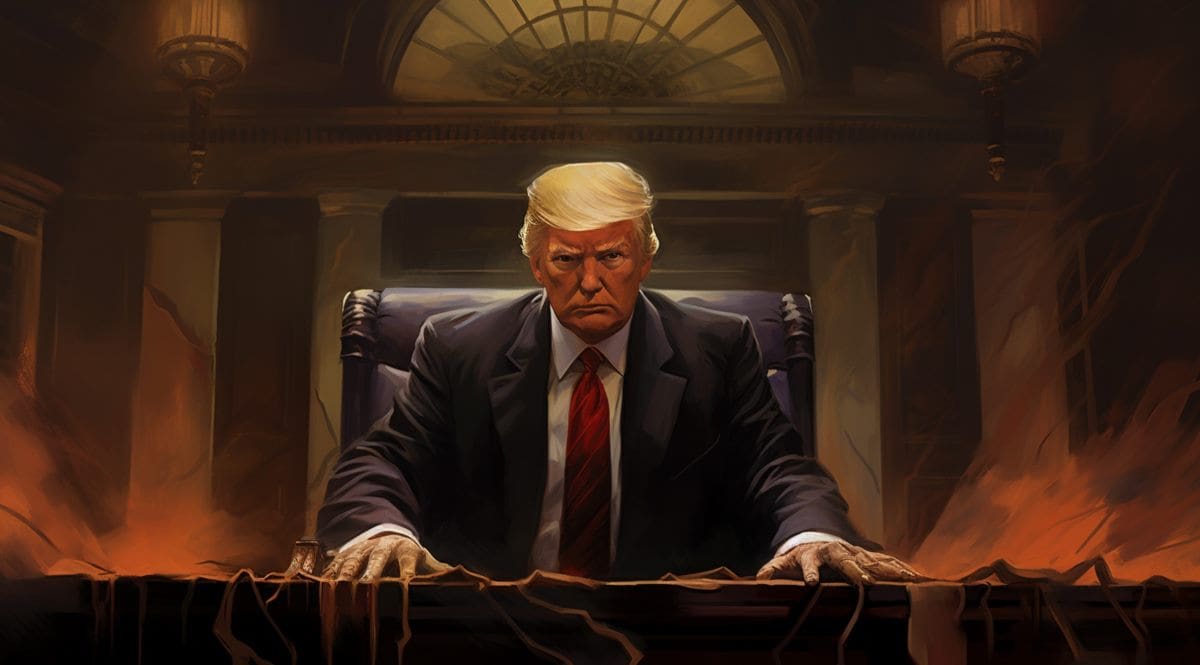
As we near the 2024 presidential election, the question on many minds is whether Donald Trump is genuinely aiming to win outright or if his strategy hinges on creating chaos that could throw the election to the House of Representatives.
While Trump is actively campaigning in key battleground states, a closer look at his tactics and the broader Republican strategy suggests a potential backup plan involving the House.
Trump’s Electoral Focus: Winning Three Key States
Trump’s most straightforward path to victory centers on flipping three critical states: Pennsylvania, North Carolina, and Georgia. According to political analysts, if Trump manages to win these three states, he can secure the presidency without needing to win other battleground states like Michigan, Wisconsin, Nevada, or Arizona. Trump’s campaign has concentrated its advertising and resources heavily on these states, particularly Pennsylvania, reflecting the importance of this specific electoral map to his 2024 strategy.
Disrupting Certification: The Republican Strategy
Beyond traditional campaigning, there are signs of a parallel strategy to disrupt the election process. Key Republican figures and groups are reportedly working to delay or challenge the certification of election results in swing states, especially those with local officials sympathetic to Trump’s cause. This could potentially lead to a scenario where the certification process is delayed beyond legal deadlines, preventing states from finalizing their electoral votes. If this happens in enough states, it could block either candidate from reaching the required 270 electoral votes, pushing the election to the House of Representatives.
The tactic involves legal battles over election laws and certification processes, aiming to exploit perceived vulnerabilities. For instance, new rules in Georgia require local election boards to conduct a “reasonable inquiry” before certifying results, a vague requirement that could be used to delay the certification process under the guise of investigating potential fraud. Critics argue that this creates an opportunity for election officials to withhold certification based on unfounded claims, thereby stalling the electoral count.
Why Throwing the Election to the House Could Favor Trump
If no candidate reaches 270 electoral votes due to delayed certifications or legal challenges, the election would be decided by the House of Representatives, where each state delegation gets one vote. Currently, Republicans control a majority of state delegations, giving Trump a significant advantage if the election were thrown to the House. In this scenario, Trump wouldn’t need a majority of the popular vote or even the Electoral College; he would simply need enough states to miss the certification deadline, creating the necessary conditions for the House to decide the outcome.
Past and Present: A Repeated Playbook
This strategy isn’t entirely new. Following the 2020 election, Trump’s allies made numerous attempts to overturn certified results, focusing on legal and procedural roadblocks. In 2024, the groundwork appears to be more sophisticated, with conservative groups actively engaging in efforts to question voter registrations and the integrity of election systems. This push, backed by a network of legal professionals and activists, seeks to shape the post-election landscape in ways that could delay or undermine the certification of results in key states.
Conclusion: A Dual Strategy in Play
While Trump is certainly campaigning to win outright by targeting critical swing states, the broader Republican strategy includes a contingency plan that could throw the election to the House if things don’t go his way. By challenging certifications, delaying results, and stoking doubts about election integrity, Trump’s team is creating pathways that could disrupt the standard electoral process. Whether this is a legitimate strategy or an intentional attempt to subvert democracy is up for debate, but the implications are clear: the 2024 election could be decided not just at the ballot box, but in the courts and the halls of Congress.
